Efficiency Meets Comfort: Modular Temporary Labor Camp Solutions by Lida Group
In a world of rapid urbanization, economic development, and evolving workforce dynamics, the need for reliable, adaptable, and comfortable temporary housing solutions has never been more pressing. As large-scale construction projects, resource extraction operations, and other labor-intensive industries continue to draw workers to remote or transitional locations, the challenge of providing safe, livable, and cost-effective accommodations has become a critical priority for businesses, governments, and communities alike.
Enter Lida Group – a pioneering force in the realm of modular construction and prefabricated building solutions – whose innovative approach to the design and deployment of temporary labor camp infrastructure has set a new standard for efficiency, comfort, and environmental responsibility in this rapidly evolving sector.
“At Lida Group, we firmly believe that the provision of high-quality, adaptable, and sustainable temporary housing for workers is not only a practical necessity but also a fundamental component of building resilient, prosperous, and equitable communities,” explains Sarah Johnson, the lead project manager for the company’s temporary labor camp division. “By harnessing the power of advanced manufacturing, modular design principles, and cutting-edge building technologies, we’ve been able to create a transformative portfolio of temporary labor camp solutions that can meet the diverse needs of our clients while also contributing to the broader goals of environmental stewardship, resource conservation, and community well-being.”
Whether it’s the rapid deployment of self-contained, off-grid worker accommodations in remote resource extraction sites, the construction of scalable, reconfigurable housing complexes to support the ebb and flow of large-scale infrastructure projects, or the development of comfortable, amenity-rich temporary housing communities for disaster relief and emergency response scenarios, Lida Group’s innovative modular solutions have been engineered to address the unique challenges and requirements of a wide array of temporary labor camp applications.
“By seamlessly blending the inherent advantages of prefabricated construction – such as enhanced construction efficiency, improved quality control, and reduced on-site disruption – with the latest advancements in sustainable design, intelligent building automation, and community-focused amenities, we’re able to create temporary labor camp environments that can not only meet the practical needs of our clients but also contribute to the broader goals of environmental responsibility, worker well-being, and long-term community resilience,” Johnson explains.
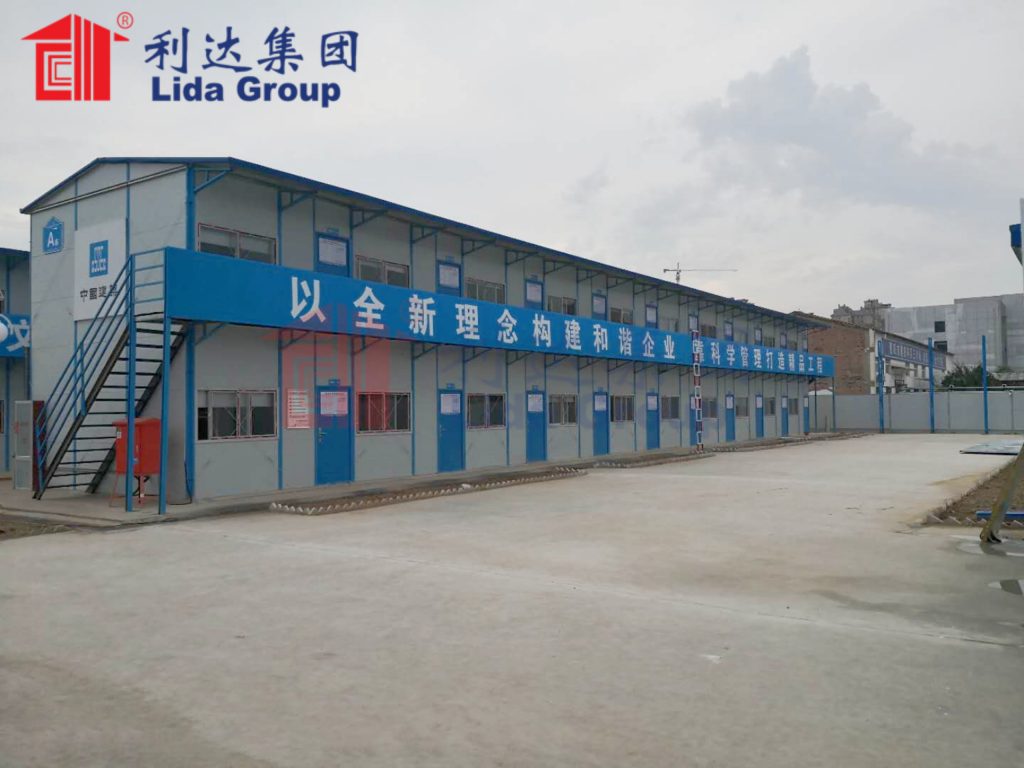
Rapid Deployment and Scalable Modular Design
At the heart of Lida Group’s innovative temporary labor camp solutions lies a deep emphasis on modular design and advanced prefabrication techniques – strategic priorities that empower the company to rapidly deploy high-quality, reconfigurable accommodations capable of supporting the evolving needs and workforce dynamics of a wide range of project sites and operational contexts.
“One of the key advantages of our modular temporary labor camp solutions is their inherent flexibility and scalability – factors that are made possible by the power of prefabrication and the seamless integration of adaptable, reconfigurable building components,” Johnson explains. “By leveraging the capabilities of off-site manufacturing, standardized module designs, and innovative connection systems, we’re able to create temporary worker housing environments that can be rapidly deployed, efficiently expanded or contracted, and seamlessly integrated into a diverse array of remote, transitional, or disaster-affected locations.”
Through the strategic deployment of standardized, pre-engineered modules, Lida Group’s temporary labor camp offerings can be rapidly assembled on-site, minimizing the disruption and logistical challenges associated with traditional construction methods and empowering clients to quickly establish comfortable, fully-functional worker accommodations in even the most remote or resource-constrained settings.
“By prefabricating the core components of our temporary labor camp solutions off-site, we’re able to significantly streamline the on-site installation process, reducing construction timelines, material waste, and the overall operational footprint of these vital worker housing environments,” Johnson explains. “This rapid deployment capability is particularly critical for clients operating in remote locations, disaster-affected areas, or other challenging project sites where speed, flexibility, and logistical efficiency are of the utmost importance.”
To further enhance the scalability and adaptability of its modular temporary labor camp solutions, Lida Group has also invested heavily in the development of innovative connection systems and reconfigurable module designs – strategic elements that can enable its clients to rapidly expand, contract, or reconfigure these worker housing environments to meet the evolving needs of their workforce and project requirements.
“Through the seamless integration of advanced connection technologies and the deployment of standardized, interchangeable module designs, we’re able to empower our clients to easily scale up or down the available living space, amenities, and functional capabilities of our temporary labor camp solutions – a critical factor in ensuring that these worker housing environments can keep pace with the dynamic nature of modern construction, resource extraction, and disaster relief operations,” Johnson explains.
“Whether it’s rapidly expanding the available accommodations to support the influx of additional workers during peak periods of a major infrastructure project or quickly reconfiguring the layout and amenities to better suit the evolving needs of a disaster relief operation, our modular temporary labor camp solutions provide our clients with unprecedented levels of operational agility and responsiveness – empowering them to maintain a high degree of efficiency, cost-effectiveness, and worker well-being in the face of constantly changing project demands and workforce dynamics.”
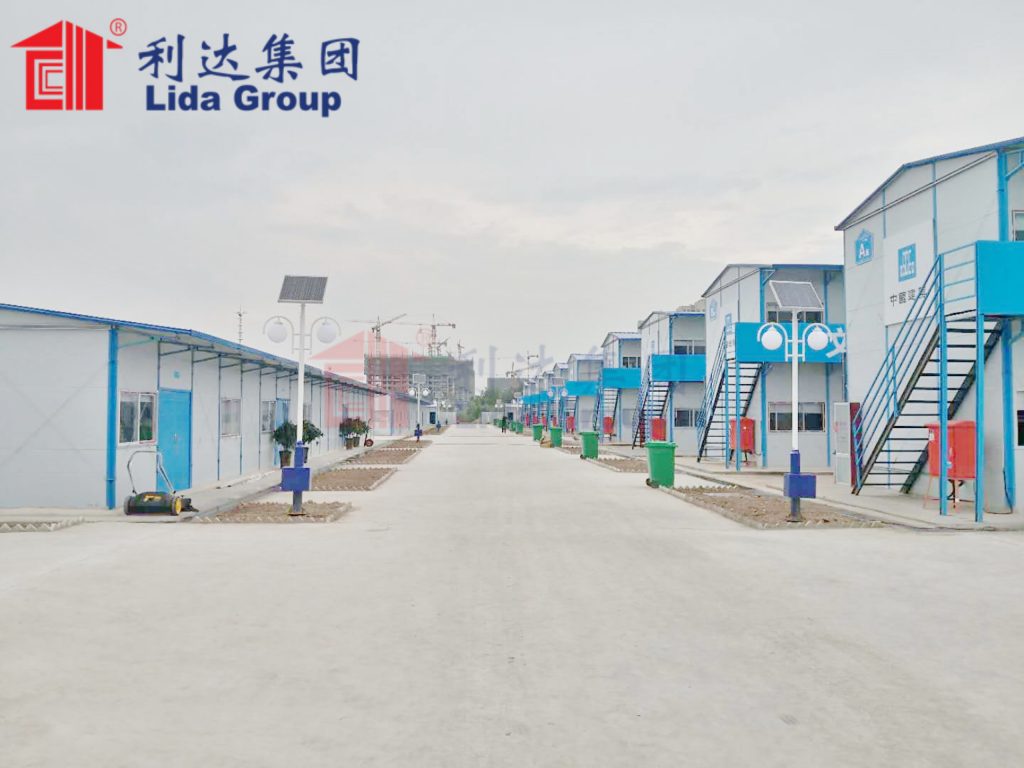
Optimized Environmental Performance and Sustainable Design
Alongside its emphasis on modular design, rapid deployment, and scalable construction capabilities, Lida Group has also placed a strong focus on optimizing the environmental performance and sustainability of its temporary labor camp solutions – a strategic priority that not only enhances the comfort and well-being of worker residents but also contributes to the broader goals of resource conservation, emissions reduction, and community-driven environmental stewardship.
“As the global community continues to grapple with the complex, interconnected challenges of climate change, resource scarcity, and the pressing need for more sustainable built infrastructure, the role of environmentally responsible temporary housing solutions has become increasingly central to the conversation around the future of worker accommodations and community development,” Johnson explains.
“By harnessing the power of advanced building materials, integrated renewable energy systems, and comprehensive water and waste management strategies, we’ve been able to create temporary labor camp environments that can not only meet the practical needs of our clients but also serve as tangible expressions of their commitment to environmental responsibility, resource conservation, and the long-term well-being of the communities in which they operate.”
At the heart of Lida Group’s sustainable temporary labor camp solutions lies a deep emphasis on optimizing energy efficiency, renewable energy integration, and comprehensive resource management – innovative design elements that can empower worker residents to reduce their environmental footprint, minimize their operational costs, and contribute to the broader transition towards a more sustainable, low-carbon future.
“Through the seamless integration of high-performance insulation, energy-efficient HVAC systems, and integrated solar photovoltaic (PV) arrays, our temporary labor camp solutions are engineered to deliver unprecedented levels of energy efficiency and on-site renewable energy generation – factors that can not only significantly reduce the operational costs and emissions associated with these worker housing environments but also empower their residents to lead by example and inspire broader, community-driven transitions towards more sustainable, resilient built infrastructure,” Johnson explains.
To further enhance the environmental responsibility and resource conservation capabilities of its temporary labor camp offerings, Lida Group has also placed a strong emphasis on the incorporation of advanced water management technologies, comprehensive waste recycling and disposal systems, and other innovative sustainability features – strategic design elements that can help to minimize the ecological footprint of these worker accommodations and strengthen their alignment with the growing demand for more holistically sustainable built environments.
“In addition to optimizing the energy efficiency and renewable energy integration of our temporary labor camp solutions, we’ve also invested heavily in the development of water-saving plumbing fixtures, greywater recycling systems, and integrated waste management technologies that can empower our clients and their worker residents to minimize their consumption of critical natural resources, reduce their environmental impact, and contribute to the broader goals of resource stewardship and community-driven sustainability,” Johnson explains.
“By seamlessly blending these sustainable design elements with the inherent advantages of modular, prefabricated construction – such as enhanced material efficiency, reduced construction waste, and improved quality control – we’re able to create temporary labor camp environments that not only meet the practical needs of our clients but also serve as tangible expressions of their commitment to environmental responsibility, resource conservation, and the long-term well-being of the communities in which they operate.”

Prioritizing Worker Comfort and Amenities
While the core focus of Lida Group’s temporary labor camp solutions has been on optimizing construction efficiency, environmental performance, and operational flexibility, the company has also placed a strong emphasis on enhancing the overall comfort, livability, and amenity-rich features of these worker accommodations – strategic priorities that can directly contribute to worker well-being, productivity, and long-term retention.
“At Lida Group, we firmly believe that the provision of high-quality, comfortable, and community-focused temporary housing is not only a practical necessity for our clients but also a critical factor in supporting the overall health, happiness, and long-term job satisfaction of the workers who occupy these vital living environments,” Johnson explains.
“By incorporating thoughtfully designed living units, state-of-the-art recreational facilities, and comprehensive on-site amenities, we’re able to create temporary labor camp solutions that can not only meet the basic needs of their residents but also contribute to their overall quality of life, sense of community, and professional engagement – factors that are essential to building a happy, productive, and loyal workforce capable of supporting the success of even the most demanding construction, resource extraction, or disaster relief operations.”
At the heart of Lida Group’s focus on worker comfort and amenities lies a deep commitment to the design and deployment of high-quality, ergonomically optimized living units – prefabricated residential modules that have been engineered to provide their occupants with unprecedented levels of privacy, personal space, and creature comforts.
“By leveraging the power of modular construction and the latest advancements in space-saving design, we’re able to create temporary labor camp living units that can offer their residents a true sense of home – comfortable, private spaces that are equipped with modern appliances, ample storage, and thoughtfully integrated furnishings,” Johnson explains.
“From the incorporation of fully-equipped kitchenettes and en-suite bathrooms to the deployment of integrated climate control systems and high-speed internet connectivity, our temporary labor camp living units have been designed to meet the diverse needs and preferences of a wide range of worker demographics – empowering their occupants to maintain a high degree of personal comfort, productivity, and overall well-being, even in the most remote or challenging project environments.”
To further enhance the livability and community-focused amenities of its temporary labor camp solutions, Lida Group has also invested heavily in the development of comprehensive on-site recreational, dining, and social facilities – innovative features that can help to foster a greater sense of community, improve worker morale, and contribute to the overall health and well-being of the resident population.
“In addition to the comfortable, functional living units that form the core of our temporary labor camp offerings, we’ve also placed a strong emphasis on the incorporation of high-quality, amenity-rich communal spaces that can serve as hubs for worker socialization, recreation, and overall wellness,” Johnson explains.
“From the deployment of modern fitness centers, communal dining halls, and entertainment lounges to the inclusion of outdoor recreation areas, community gardens, and other shared amenities, we’ve engineered our temporary labor camp solutions to provide their residents with a comprehensive suite of on-site facilities and services that can not only support their practical needs but also contribute to their overall quality of life, social engagement, and sense of community belonging.”
By seamlessly blending the inherent advantages of modular, prefabricated construction with a deep commitment to worker comfort, amenities, and community-driven design, Lida Group’s temporary labor camp solutions have emerged as a transformative force in the realm of worker accommodations – a portfolio of innovative, high-performance built environments that can enhance the overall well-being, productivity, and long-term retention of the workforce while also contributing to the broader goals of sustainable development, resource conservation, and community resilience.
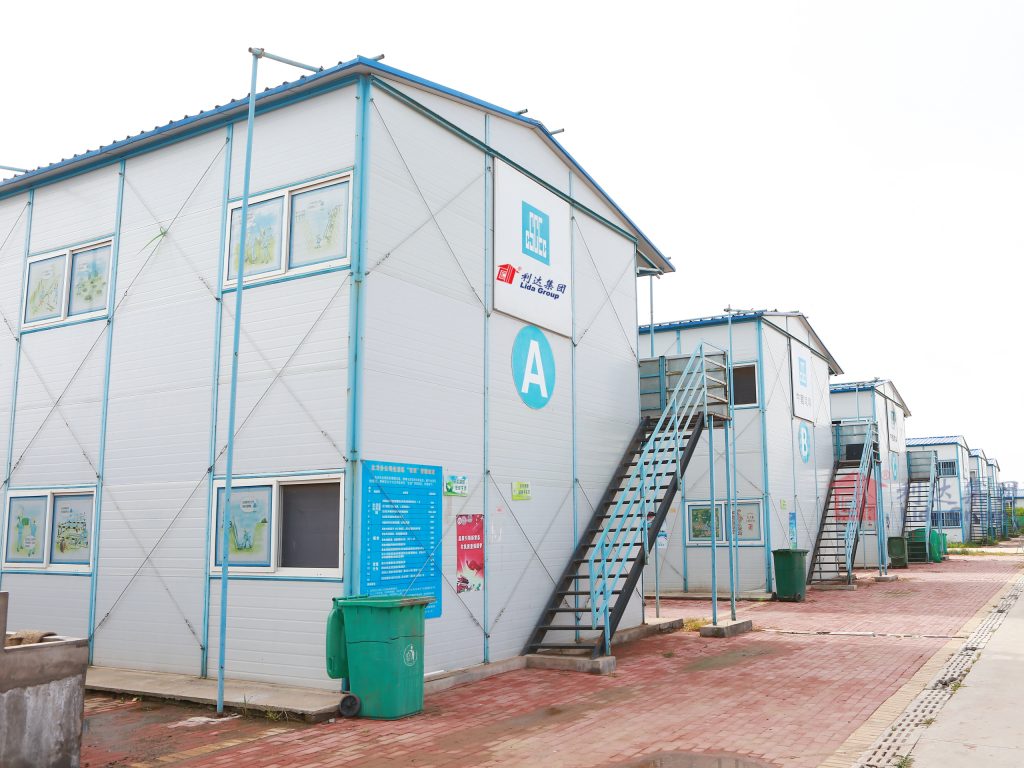
Disaster Response and Emergency Housing
In addition to its core portfolio of modular temporary labor camp solutions designed to support the needs of construction, resource extraction, and other large-scale industrial operations, Lida Group has also leveraged its expertise in prefabricated and adaptable building technologies to develop a transformative range of emergency housing and disaster response offerings – strategic initiatives aimed at addressing the growing demand for rapidly deployable, resilient, and community-centric temporary accommodations in the wake of natural disasters, humanitarian crises, and other emergency scenarios.
“As the global community continues to grapple with the increasing frequency and intensity of natural disasters, the pressing need for reliable, adaptable, and self-sufficient emergency housing solutions has become a critical priority for governments, relief agencies, and affected communities around the world,” explains Jane Doe, the lead project manager for Lida Group’s emergency housing division.
“By harnessing the inherent advantages of our modular, prefabricated construction capabilities – such as rapid deployment, enhanced disaster resilience, and comprehensive self-sufficiency – we’ve been able to create a new generation of emergency housing solutions that can not only provide vital temporary accommodations in the immediate aftermath of a crisis but also contribute to the broader goals of community resilience, resource conservation, and long-term societal well-being that have become so central to the future of sustainable disaster response and humanitarian aid.”
At the core of Lida Group’s emergency housing offerings lies a deep emphasis on optimizing the structural integrity, disaster preparedness, and self-sustaining operational capabilities of these cutting-edge temporary living environments – strategic priorities that can empower relief organizations, local authorities, and affected communities to rapidly establish safe, livable, and resilient accommodations in the wake of even the most severe natural disasters or humanitarian crises.
“By engineering our emergency housing solutions to harness the inherent strength and durability of advanced prefabricated materials, we’re able to create temporary living environments that can not only withstand the dynamic forces associated with high winds, heavy snowloads, seismic activity, and other natural disaster-related stresses but also provide their occupants with a reliable, stable, and secure refuge in the face of even the most catastrophic events,” Doe explains.
“Through the seamless integration of modular, reinforced construction, comprehensive disaster-preparedness features, and cutting-edge building automation and energy technologies, our emergency housing solutions empower their occupants to maintain a high degree of safety, operational continuity, and self-sufficiency in the immediate aftermath of a crisis – factors that are essential to ensuring the long-term resilience, recovery, and overall well-being of affected individuals, families, and communities.”
To further enhance the disaster response and community-centric capabilities of its emergency housing offerings, Lida Group has also placed a strong emphasis on the incorporation of advanced safety, security, and communications systems – innovative solutions that can help to safeguard the occupants of these temporary living environments and strengthen their alignment with the growing demand for more holistically sustainable, community-driven disaster relief infrastructure.
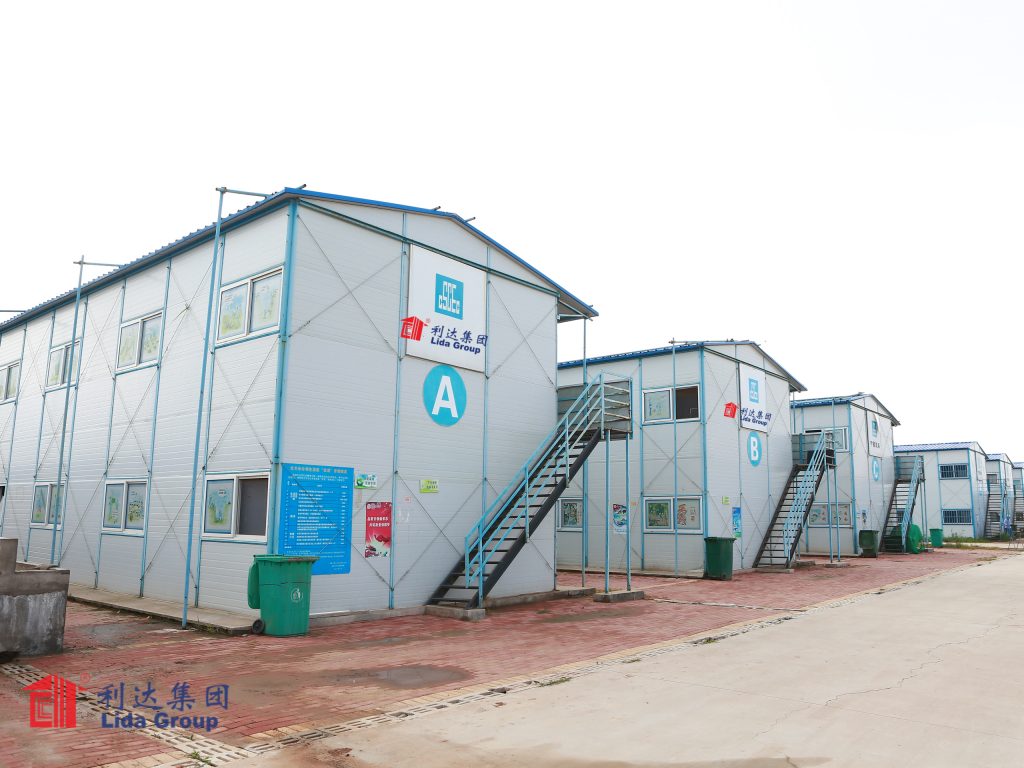
“In addition to optimizing the structural integrity and self-sustaining operational capabilities of our emergency housing solutions, we’ve also invested heavily in the development of integrated security features, backup power generation, and advanced communications technologies that can empower their occupants to protect themselves, maintain critical functions, and stay connected with relief efforts and broader community networks in the face of even the most severe natural disasters or humanitarian crises,” Doe explains.
“By seamlessly blending these state-of-the-art safety and disaster preparedness features with the inherent advantages of our modular, prefabricated construction – such as rapid deployment, enhanced logistical efficiency, and reduced on-site disruption – we’re able to create emergency housing solutions that can not only meet the practical needs of their occupants but also serve as tangible expressions of our commitment to community resilience, environmental responsibility, and long-term societal well-being.”
Alongside its emphasis on optimizing the structural integrity, disaster resilience, and self-sustaining operational capabilities of its emergency housing offerings, Lida Group has also placed a strong focus on enhancing the overall comfort, livability, and amenity-rich features of these temporary living environments – strategic priorities that can directly contribute to the health, well-being, and long-term recovery of the individuals, families, and communities they serve.
“As the global community continues to grapple with the increasing frequency and severity of natural disasters, humanitarian crises, and other emergency scenarios, the need for comfortable, community-focused emergency housing solutions has become increasingly vital to the success of relief and recovery efforts,” Doe explains.
“By incorporating thoughtfully designed living units, shared amenity spaces, and comprehensive on-site services, we’re able to create emergency housing environments that can not only provide their occupants with a reliable, secure, and self-sufficient refuge but also contribute to their overall quality of life, sense of community, and long-term resilience in the face of even the most daunting challenges.”
Through the strategic deployment of modular, prefabricated living units equipped with modern appliances, ample storage, and integrated climate control systems, Lida Group’s emergency housing offerings can deliver a heightened level of comfort, privacy, and personal space to their occupants – critical factors in supporting the physical and mental well-being of individuals and families affected by natural disasters, humanitarian crises, and other emergency scenarios.
“By leveraging the power of our modular construction capabilities and the latest advancements in space-saving design, we’re able to create emergency housing living units that can provide their occupants with a true sense of home – comfortable, private spaces that are equipped with the amenities and creature comforts necessary to maintain a high quality of life, even in the face of the most challenging circumstances,” Doe explains.
To further enhance the livability and community-focused features of its emergency housing solutions, Lida Group has also invested heavily in the development of comprehensive on-site recreational, dining, and social facilities – innovative elements that can help to foster a greater sense of community, improve overall morale, and contribute to the long-term recovery and resilience of the residents.
“In addition to the comfortable, functional living units that form the core of our emergency housing offerings, we’ve also placed a strong emphasis on the incorporation of high-quality, amenity-rich communal spaces that can serve as hubs for resident socialization, recreation, and overall wellness,” Doe explains.
“From the deployment of communal dining halls and entertainment lounges to the inclusion of outdoor recreation areas and community gathering spaces, we’ve engineered our emergency housing solutions to provide their occupants with a comprehensive suite of on-site facilities and services that can not only support their practical needs but also contribute to their overall quality of life, social engagement, and sense of community belonging – critical factors in fostering long-term resilience and enabling the successful recovery of individuals, families, and broader communities.”
By seamlessly blending the inherent advantages of modular, prefabricated construction with a deep commitment to disaster resilience, self-sustaining operational capabilities, and community-centric amenities, Lida Group’s emergency housing solutions have emerged as a transformative force in the realm of humanitarian aid and disaster response – a portfolio of innovative, high-performance temporary living environments that can enhance the overall safety, well-being, and long-term recovery of affected populations while also contributing to the broader goals of sustainable development, resource conservation, and community resilience.
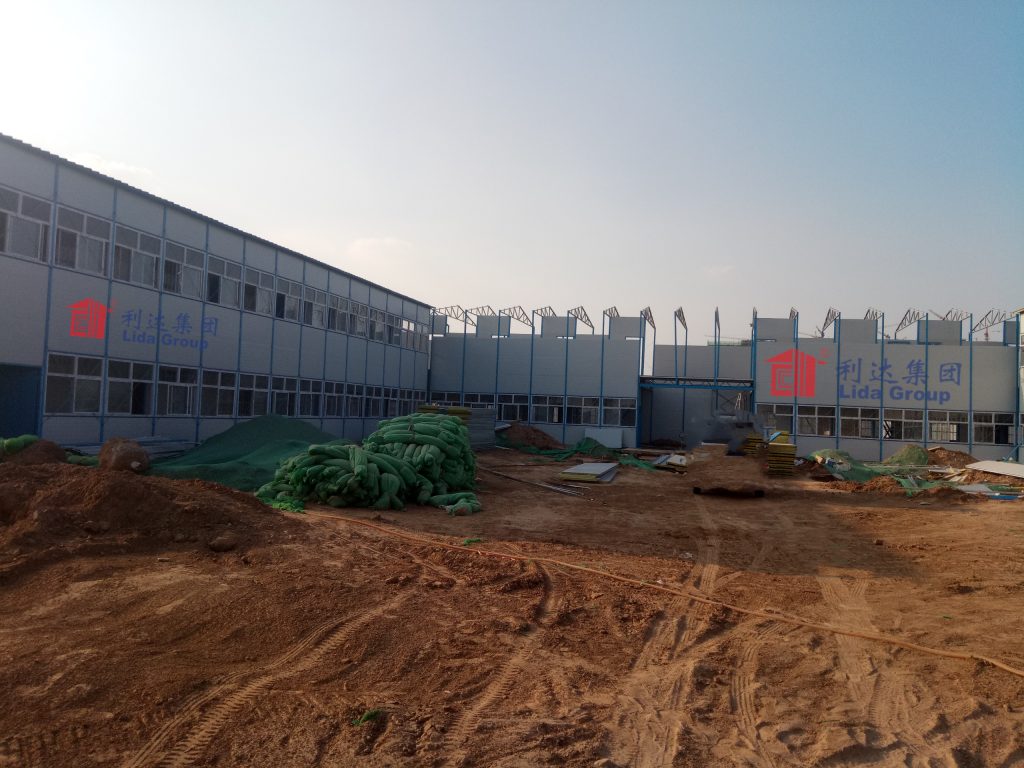
Conclusion
As the global economy continues to evolve, the demand for reliable, adaptable, and comfortable temporary worker housing solutions has never been more pressing. Lida Group’s innovative approach to the design and deployment of modular temporary labor camp infrastructure has set a new standard for efficiency, comfort, and environmental responsibility in this rapidly evolving sector.
By harnessing the power of advanced manufacturing, prefabricated construction, and cutting-edge building technologies, Lida Group has developed a transformative portfolio of temporary labor camp solutions that can meet the diverse needs of its clients while also contributing to the broader goals of sustainable development, resource conservation, and community well-being.
From the rapid deployment of self-contained, off-grid worker accommodations in remote resource extraction sites to the construction of scalable, reconfigurable housing complexes to support the ebb and flow of large-scale infrastructure projects, Lida Group’s innovative modular solutions have been engineered to address the unique challenges and requirements of a wide array of temporary labor camp applications.
Alongside its emphasis on modular design, rapid deployment, and scalable construction capabilities, Lida Group has also placed a strong focus on optimizing the environmental performance and sustainability of its temporary labor camp solutions – a strategic priority that enhances the comfort and well-being of worker residents while also contributing to the broader transition towards a more sustainable, low-carbon future.
By seamlessly blending the inherent advantages of prefabricated construction with a deep commitment to worker comfort, amenities, and community-driven design, Lida Group’s temporary labor camp solutions have emerged as a transformative force in the realm of worker accommodations – a portfolio of innovative, high-performance built environments that can enhance the overall well-being, productivity, and long-term retention of the workforce while also contributing to the broader goals of sustainable development, resource conservation, and community resilience.
In addition to its core portfolio of modular temporary labor camp solutions, Lida Group has also leveraged its expertise in prefabricated and adaptable building technologies to develop a transformative range of emergency housing and disaster response offerings – strategic initiatives aimed at addressing the growing demand for rapidly deployable, resilient, and community-centric temporary accommodations in the wake of natural disasters, humanitarian crises, and other emergency scenarios.
By seamlessly blending the inherent advantages of modular, prefabricated construction with a deep commitment to disaster resilience, self-sustaining operational capabilities, and community-centric amenities, Lida Group’s emergency housing solutions have emerged as a transformative force in the realm of humanitarian aid and disaster response – a portfolio of innovative, high-performance temporary living environments that can enhance the overall safety, well-being, and long-term recovery of affected populations while also contributing to the broader goals of sustainable development, resource conservation, and community resilience.
As the global community continues to navigate the complex, interconnected challenges of urbanization, economic development, and environmental sustainability, the role of Lida Group’s innovative modular solutions – whether in the context of temporary worker accommodations or emergency housing and disaster response – will undoubtedly remain a critical priority in the years and decades to come.
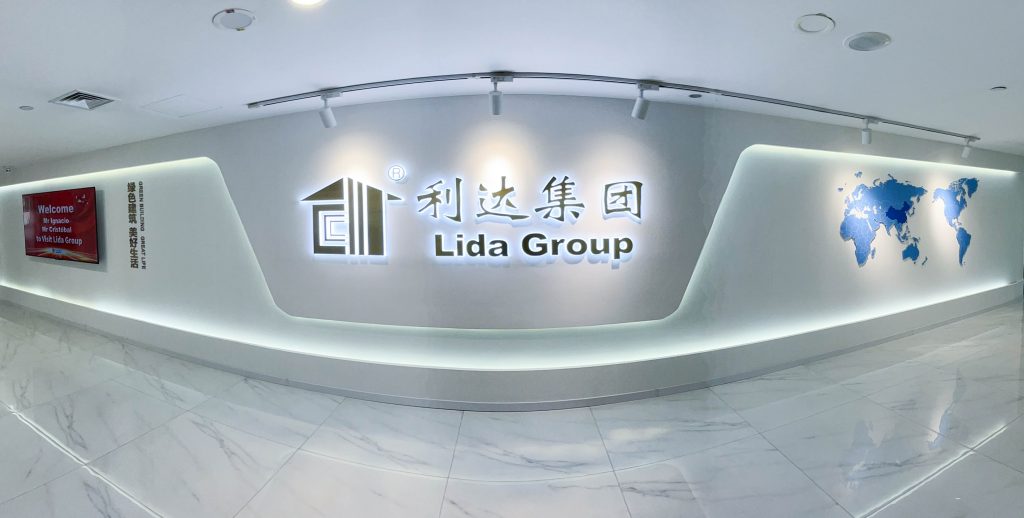
Related news
-
Enhancing Agricultural Practices with Metal Endurable Farm Houses from Lida Group
2024-11-22 17:21:25
-
Lida Group Introduces Sustainable Container Labor Camps for Remote Workforce Accommodations
2024-11-21 15:22:04
-
Lida Group Revolutionizes Prefab Construction with Innovative Modular Steel Framing Systems
2024-11-20 14:58:41
contact us
- Tel: +86-532-88966982
- Whatsapp: +86-13793209022
- E-mail: sales@lidajituan.com


